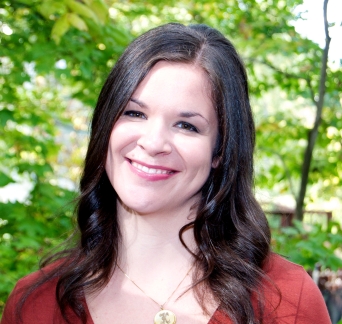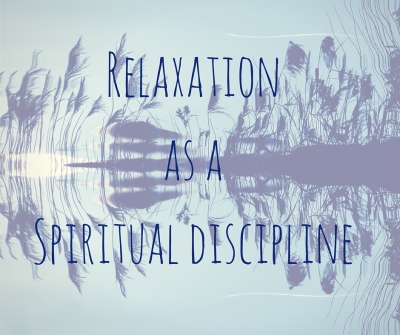 I have a productivity obsession. I wouldn’t go so far as to call it an addiction, though in describing to a friend how euphoric it feels to check off a bunch of to-dos, he said, “You kind of sound like a junkie.” He may be right. Up until a year ago I didn’t think I had a problem. When I heard experts talk about self-care and meditation and “me” time, I’d roll my eyes a bit. Self-care is for wimps, I thought to myself. And I was certainly not one of those. I didn’t need time off for self-care. I had my to-do lists.
I have a productivity obsession. I wouldn’t go so far as to call it an addiction, though in describing to a friend how euphoric it feels to check off a bunch of to-dos, he said, “You kind of sound like a junkie.” He may be right. Up until a year ago I didn’t think I had a problem. When I heard experts talk about self-care and meditation and “me” time, I’d roll my eyes a bit. Self-care is for wimps, I thought to myself. And I was certainly not one of those. I didn’t need time off for self-care. I had my to-do lists.
I started to question if I really had this all figured out when I was two weeks postpartum and back to work full-time because like most workers in the United States, I didn’t have paid family leave. Between the hormonal fluctuations and sleep deprivation, I lacked the mental clarity I needed to prioritize tasks. So then every task became the most urgent thing. On top of caring for a newborn and recovering from the birth, this created a perpetual state of mental exhaustion that was simply not sustainable. I needed to do something before I burned out completely.
One of the first steps I took was doing a self-assessment of the current state of my overall wellness–physical, mental, emotional, and spiritual. The first thing I jotted down was, “I’m stretched to my limits. I’m productive to a fault.” That was telling. My next step was to write out a wellness prescription. Since lists and schedules are my drugs of choice, could I try using them for good? I wrote out a self-care to-do list with a dozen different items, including weekly yoga sessions and scheduled downtime.
But even after going through this whole process, I still doubted from time to time if I truly needed this change in my life. Part of me was simply going through the motions of what I thought I was supposed to do to achieve wellness. Twice a week I’d pull out my journal to meet my “self-reflection” quota I’d set, but it felt forced. Every Friday I’d dutifully do my downward-facing dogs to scratch “yoga” off my weekly list, but my heart wasn’t in it. Wasn’t I just turning self-care into another form of productivity–another pressing agenda item to accomplish, another challenge to conquer? I felt like I was missing the point completely.
 What I needed wasn’t another thing to cross of my list, but rather a space in my daily life for simply being. As you might imagine, effortlessness does not come easily to someone like me. I much prefer doing to being. But the more I tried to “do” relaxation, the more willpower and determination I brought to it, the less I was able to experience it. Not one to give up easily, I continued going through the motions of relaxing, and eventually my mindset about it began to shift. I started to realize that self-care is not about accomplishing any particular thing. Self-care is about stillness, quiet, and relaxation.
What I needed wasn’t another thing to cross of my list, but rather a space in my daily life for simply being. As you might imagine, effortlessness does not come easily to someone like me. I much prefer doing to being. But the more I tried to “do” relaxation, the more willpower and determination I brought to it, the less I was able to experience it. Not one to give up easily, I continued going through the motions of relaxing, and eventually my mindset about it began to shift. I started to realize that self-care is not about accomplishing any particular thing. Self-care is about stillness, quiet, and relaxation.
Relaxation is one spiritual discipline that I never heard much about growing up in the evangelical church. Prayer was performative most of the time, and even when it was done silently, I found myself stressed out, racking my brain for things to say to God. But in trying to cultivate more quiet in my life lately, I’ve returned to an oft-quoted scripture of my youth, “Be still and know that I am God”(Psalms 46:10). It doesn’t read “be still and think” or “be still and send verbose silent messages to God.” Instead it calls us to knowing, to presence, to mindfulness. It is a call to being.
I don’t have high hopes that I’ll get past my productivity obsession any time soon. In fact I’ll probably be in recovery for the rest of my life. But I am committed to making more space in my life to cultivate the discipline of relaxation. Those to-do lists aren’t going anywhere though.
Katey Zeh, M.Div is a strategist, writer, and educator who inspires intentional communities to create a more just, compassionate world through building connection, sacred truth telling, and striving for the common good. In 2010 Zeh launched the first and only denominationally-sponsored advocacy campaign focused on improving global reproductive health for The United Methodist Church. She has written extensively about global maternal health, family planning, and women’s sacred worth for outlets including Huffington Post, Religion Dispatches, Response magazine, the Good Mother Project, Mothering Matters, the Journal for Feminist Studies in Religion, and the United Methodist News Service. Find her on Twitter at @ktzeh or on her website www.kateyzeh.com.


Thank you for the reminder that self care is important. I have always tried to reflect on loving my neighbor as myself. If I am not caring for myself, how can I care for my neighbor.
LikeLike
Every age has its privileges, but life is always a learning process.
LikeLike
Sarah, amen!
LikeLike
Thanks, Bernadette. Yes, this part of the commandment is not often the focus, but I think it should be. Love of self and love of neighbor must exist together.
LikeLike
So effortlessness requires effort, eh? You’ve learned some good and useful lessons. Good for you! I, too, like to make lists. Maybe we both need to relax. Try this: learn to read with your eyes closed. At least once a day. ;-)
LikeLike
“Effortlessness requires effort”–exactly! Now I’m off to go meditate…
LikeLike
Philosopher Hartshorne said that the injunction to “love your neighbor as yourself” implies that you love yourself too. Very wise.
LikeLike
Yes, absolutely. I am finding more and more that when I am depleted, I have little to offer others. Another way of putting it is that airline instruction to “Put your own mask on before assisting others.”
LikeLike
Yes! I used to use that example with my psychotherapy clients all the time!
LikeLike
As a fellow productivity obsessed person, I can say I relate to your need to accomplish. It actually causes more stress if you aren’t accomplishing. However, I’ve learned (the hard way most times) you also need to take care of yourself. Maybe it’s just a bath for half an hour on the weekend… I work full time, write full time (or nearly) and have three adult daughters, husband and large extended family. There are times I make myself stop working in order to spend time with my husband or chat with my daughters. It’s worth it in the long run but in the moment – not an easy thing to do. Good luck…
LikeLike
Thanks, Eileen! It helps to know I’m not alone in this struggle. I truly believe this is a discipline that must be practiced. Burn out is good for no one!
LikeLike
I just loved this post!
I also have a hard time with giving myself permission to just be. I finally instituted a morning routine of meditation, reiki, and prayer a little over a year ago. Many times I feel I fail miserably but I just keep doing it anyway. My reward has been that I am generally calmer, I don’t react to things with so much anger and upset. And when I am in pain I can often focus on my breathing, which I never could before. I also feel much more grounded. I feel the effects across all areas of my life.
I think the most important thing is to keep doing the things that you have decided to do to help yourself (though of course they can change). The repeated practice makes gradual changes which aren’t immediately evident in your day-to-day life.
I think it is a real gift to both yourself and your child that you realized that you need to take care of yourself. You will be a much better parent for it, and happier too.
I really like the quote of “Be still, and know I am God.”
LikeLike
Iris, thank you for this wonderful comment! Yes, I sometimes just force myself to meditate even though I don’t want to. I figure by just doing it over and over again, it’ll come in time. I have also found a shift in my reactions to “triggers.” I am able to pause before I respond, which has made life better for everyone, especially me!
LikeLike
Yay, that’s how it happens–gradually. And you do find yourself getting into the swing of meditation. Then your body and mind start asking for it! It’s fascinating to see the changes.
LikeLike